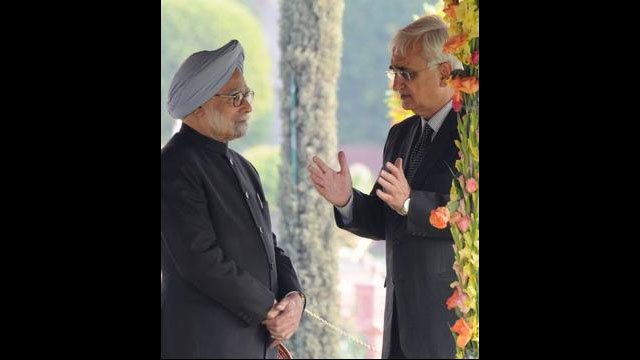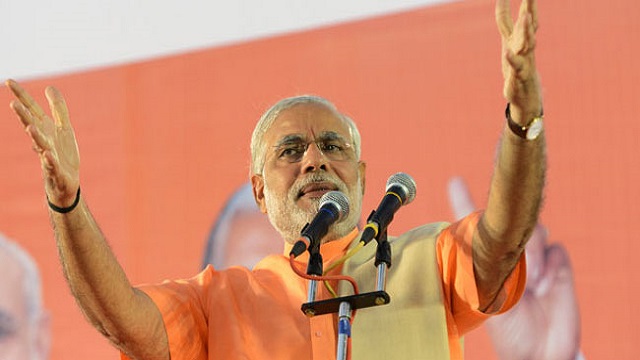Given that ministry of external affairs and DAE had been instrumental in aggravating the situation along with PMO, they all need to come up with clarifications. DAE has done its bit, but Khurshi’d statement is simply not enough.
Just a day after wide speculations that the government will use Attorney-General’s opinion over nuclear liability act under US pressure, external affairs minister Salman Khurshid said on Thursday that the government will not sign any nuclear contract with the US that was against national interest.
Reported in the leading english newspaper, The Hindu, Attorney General Goolam Vahnavati had opined in the matter referred to him on September 4, that the nuclear operators could waive their right of recourse against a foreign supplier in the event that an accident is caused by faulty equipment under section 17 (b) of the Civil Liability for Nuclear Damage Act. Khurshid reacted saying that laws are framed by parliament and nobody can overrule it.
The department of atomic energy (DAE), which has pitched the ground for the AG’s opinion, too tried to clear the air by issuing a statement on the matter. It said that all commercial contracts between the Nuclear Power Corporation of India Ltd. (NPCIL) and foreign suppliers will be consistent with Indian law and that the law will not be diluted in any case.
Reportedly, the AG had only endorsed the view expressed by the Ministry of External Affairs in an internal note that “a right was given to the operator to have recourse against the supplier but there was no mandatory obligation or requirement for the operator to do so and that the operator could choose not to exercise that right.”
The opinion has also come at a time when prime minister Manmohan Singh is due to visit US President Barack Obama on September 27 and NPCIL is working on ‘pre-early works arrangement’ to be signed with Westinghouse likely to be signed next week. The section 17 (b) of the law ensures that foreign suppliers do not get away scot-free if anuclear accident is traced back to “equipment or material with patent or latent defects or sub standard services.” As this may incur heavy losses to the foreign investors, American nuclear vendors Westinghouse and GE have lobbied hard with Washington and Delhi to have this provision amended or removed.
In 2008, India had promised American companies 10,000 MWe worth of contracts for setting up nuclear power plants in return for the U.S. administration helping to end the country’s nuclear isolation. Now, five years later, NPCIL and Westinghouse are set to sign an agreement that in theory will give the American company the go ahead to begin work on its proposed nuclear power park in Mithi Virdi, Gujarat.
It is to be noted that section 17 grants the operator the right of recourse under one of three conditions: (a) if the right is expressly provided for in writing; (b) if the accident is caused by faulty material or equipment provided by the supplier; or (c) the accident results from an act of commission or omission of an individual done with intent to cause nuclear damage.
The wide criticism that the government and DAE received, saw strategic expert C Rajamohan blaming the government on the viability and quality of the nuclear liability law. He was reported saying that the nuclear liability act is a bad law which is not in conformity with international standards. “The government has mismanaged the entire affair and it is being painted that the law will be diluted under US pressure. The Russians and the French are also unhappy about it. Indian suppliers are also upset with the Act,” he said.
The opposition was united in the matter. The BJP said that the whole liability of the manufacturer was sought to be compromised and the entire mandate of Parliament was being disobeyed.
The CPI(M) warned against an “illegal attempt to bypass the law passed by Parliament. Irrespective of the written contract [that NPCIL might sign with the American vendor Westinghouse], the right to recourse and the liability of the supplier will apply if there is supply of faulty material or equipment.”
Greenpeace said even if there was no right to recourse written into the contract, 17(b) provided for the right to recourse if the accident was caused by faulty material or equipment provided by the supplier. “Hence, irrespective of the written contract, the right to recourse and the liability of the supplier will apply if there is supply of faulty material or equipment,” said Greenpeace Executive Director Samit Aich.
Aich also accused the government of making every effort to dilute the law, whether by drafting rules that had been dismissed by the Standing Committee on subordinate legislation or through an attempt to provide an exit for foreign suppliers in contract mode. “It appears we have learnt no lessons from Bhopal or Fukushima where a renewed discussion on liability is under way. Instead of safeguarding the landmark Indian law, this is a blatant violation of supplier liability that is being proposed,” he was reported saying.
As the government has always maintained that it will never dilute the nuclear law, the law already has loopholes as pointed by the experts and the opposition. That is precisely the reason that the critics read it as a sign of India bending down gifting US dilution of the law.
As DAE is claiming, it may be government’s move to know all the pros and cons (taking AG’s opinion) not to leave any loophole in their working and contracts. But the past accidents happened in the country and the world seemed to have not affected the government’s law making machinery. This gives a reason for the opposition to cry foul.
Moreover, since section 17(b) of the law suggests parliament intended to hold suppliers responsible even if there is no contractual liability, it is not clear how a public sector undertaking like NPCIL, which is answerable to parliament, could give its suppliers a free pass.
Given that ministry of external affairs and DAE had been instrumental in aggravating the situation along with PMO, they all need to come up with clarifications. DAE has done its bit, but Khurshi’d statement is simply not enough.





